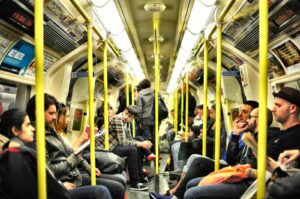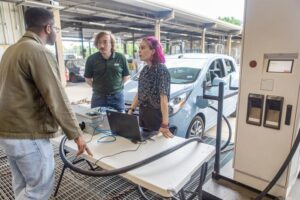Tech skills shortage in London holds back green economy
Green Skills report from London Councils says huge potential of green economy is undercut by lack of money, government planning and joined-up working
Across the country and the world, serious efforts are being made to cut carbon emissions, achieve net zero, tackle climate change more widely and help us live more sustainable, renewable lives. In fact, the green economy is booming in London. This is largely driven by four particular sectors: construction, power, low or zero carbon transport and green finance. The 2021 report Green Jobs and Skills in London predicted an additional 505,000 green jobs in the capital by 2030 and quadruple by 2050.
A new report produced by London Councils, Skills for the Transition to Net Zero: Activity across London Government, suggests a serious problem in achieving this growth. The authors of the report mapped activity to develop the skills needed for these extra jobs – and found a major shortfall.
To reach this conclusion, the authors interviewed nine London government stakeholders and other key figures between October and November 2022 and in March 2023. They also analysed the results of survey conducted in London boroughs in November 2021 as well as collating data from each borough’s published climate action plans up to July 2022. The aim was to identify gaps, duplication and areas where better co-ordination is needed, as well as to set out the major skills challenges and opportunities ahead.
The results are clear. Many industries and roles already experience skills shortages. For example, in construction there is a growing need for workers able to retrofit homes and buildings to make them more energy efficient, and to install and maintain electric vehicle (EV) infrastructure. In both cases, that needs training and experience in new tech.
This hampers progress on green activity, which London boroughs are otherwise keen to scale up – as can be seen in the £54m Social Housing Decarbonisation Fund and the £40m investment to increase EV charging infrastructure across the capital.
Many organisations in London have committed to developing the needed skills through such means as officer networks, conducting research to inform ways of working and providing training. Yet the report shows such efforts are limited by lack of resource and capacity. The main challenge, concludes the report, is a lack of long-term funding and the need for both more joined-up working and a long-term strategy for building London’s green economy.
To that end, the report recommends the development of a net zero skills strategy and action plan over the next five years. It also suggests joint lobbying of the government by London Councils and the GLA to get a clear policy plan on increasing green skills as well as further devolution to local government to enable them to stimulate the green economy from the ground up.
Mayor Rokhsana Fiaz, London Councils’ Executive Member for Skills and Employment, says: ‘London boroughs are committed to achieving net zero and doubling the size of the green economy by 2030. There is so much potential for driving economic growth and giving Londoners of all backgrounds access to jobs as we transition to a low carbon way of living. But the lack of investment in green skills is putting the brakes on these plans.
‘The Green Skills report shows why we need a real focus and long-term funding for green skills. We also need clear strategic direction from national government so the whole country is pulling together on developing the green economy, as well as greater devolution to councils so we have the powers and autonomy to get things done. Boroughs have already installed over 15,000 EV charge points, so we know we can deliver.
‘It is vital we create a green economy that works for all of our diverse communities. Green skills are crucial to achieving net zero in the coming decades and we need to invest now if we are to create the skilled workers and thriving green industries we need for the future.’
In related news:

















Leave a Reply